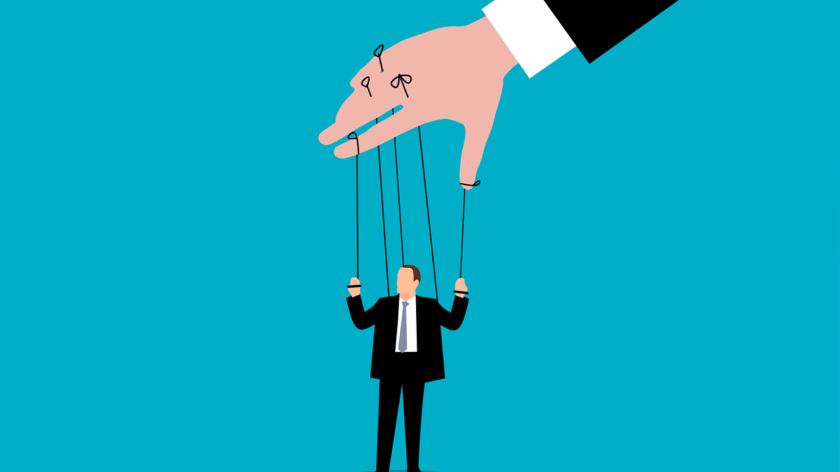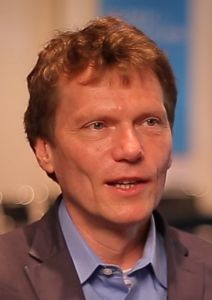Sociologist Hartmut Rosa on control: ‘A controlled world is a dead world’
-
 Photo: Pixabay
Photo: Pixabay
With the looming climate and corona crises and war in Ukraine, the world seems less controllable now than it did a few years ago. But according to sociologist Hartmut Rosa, that is not always bad. ‘Life happens at the intersections – when people are confronted with the not entirely controllable, opinionated Other.’
Hartmut Rosa’s upcoming lecture on the uncontrollability of the world couldn’t have been more topical than it is right now. The German sociologist from the University of Jena is going to give a Radboud Reflects lecture on control this Tuesday (see box). Especially following the developments in Ukraine, answers about uncontrollable circumstances appear to be in high demand at the moment.
You have written extensively about control. Do you think life in a fully controlled world is possible?
‘The simple answer is: no, I don’t think so. I touch upon this topic in my book “The Uncontrollability of the World,” in a chapter I called “The Monstrous Return of the Uncontrollable.” And I think this is something we see happening in the world right now. We are trying to control everything around us – technologically, scientifically, politically, economically, you name it – but this de facto fails, because attempts to make something controllable will have uncontrollable side effects that can take monstrous forms.’
What do you mean by that?
‘Take for example the scientific attempt to fission atomic nuclei: trying to exercise control over this is what eventually led to nuclear catastrophes like the one in Fukushima and it is what makes atomic bombs possible – something that has now become a more present threat again. But you can also see this on a much smaller scale: we’re trying to make our entire houses or apartments remote-controllable. I can set my temperature at precisely 23,5 degrees by pressing a single button – but this only works as long as the remote does. If the remote breaks or something goes wrong with the computer program, my heating is suddenly entirely out of my control. The attempt to make the world entirely controllable then turns on me and the result is the exact opposite.’
But even if the world could be controlled entirely, would that be something desirable in the first place?
‘No, absolutely not. I think that an entirely controlled world would not be desirable. I think life happens at the intersections – when people are confronted with the not entirely controllable, opinionated Other. So, for me, an entirely controlled world is a dead world, entirely unattractive to us.’
‘Collectively, control has increased, but individually, it hasn’t’
Many democratic governments, especially after the Second World War, have introduced more levels of security into their democratic systems – more control, if you want. Do we currently live in a more controlled world than, for example, 100 or 200 years ago?
‘I think there can be no doubt about that. Of course, we live in a more controlled world nowadays than 100 or 200 years ago – but how this control looks like is a different question. The sociologist Max Weber wrote about this and I think it still rings very true today: 200 years ago, we travelled by stagecoach, now we travel on the tube. We, as people, obviously have more control over the tube system now than we had over the horse pulling the stagecoach. However, an individual traveller has no control over the tube whatsoever. Weber says that we can control everything technologically – but not as individuals. I think that’s a very interesting paradox: collectively, control over our world has increased, but individually, it hasn’t.’
A feeling of individual loss of control is a topical issue right now, especially regarding the war in Ukraine. A lot of people watching the news feel like their hands are tied. What do you think does this with people?
‘I think the answer to that is, on a psychological level at least, not very straightforward. On the one hand, people are known to feel great discomfort when they are exposed to a situation in which they lose their individual sense of control and don’t know whom and what to believe. I think that was especially the case right before the war in Ukraine started. Now, on the other hand, I am more under the impression that there is a simplification taking place. Everyone in the western world seems to agree: Putin is the devil incarnate, we have to arm ourselves and eventually fight this war. There is a sort of convergence taking place that, especially in Germany, we didn’t see with regard to corona, for example. The obvious difference here is that a virus is less tangible – it’s not something you can hear or see or smell. But with the war in Ukraine, there is a very clear enemy – and that can make it easier for people. In times of acute danger, like this one, suicide rates are, for example, going down.’
‘We can influence – but we can’t control’
But, still, decisions made over whether or not to enter a war right now are out of individual peoples’ control. And that can be a big stressor. How can people handle a situation like this?
‘At the moment, we have something that one could call a triple-catastrophe: people are feeling physically threatened by three things. Firstly, through the ongoing pandemic. Secondly, through the climate crisis. And finally, because of the threat of war. And now we notice for all three of those crises that we don’t have control over them. It’s not dependent on our individual actions whether a virus is going to kill us or a heatwave or a bomb. One way in which people deal with this contingency is to put their fate into a superhuman force – in the universe or a god. This is a way to delegate trust – away from technology and science and towards a higher power. And in a way, I think this is a stance we are forced to take. That doesn’t mean that we can’t do something. We can try to take precautions with regard to the virus and policy decisions and individual decisions will have an influence on the development of the climate crisis. Even wars like the one in Ukraine will be influenced by individual and government decisions. We can – and we should – try our best. Through that, we can influence – but we can’t control.’
Hartmut Rosa
German sociologist Hartmut Rosa (1965) from the University of Jena is researching control – and the absence thereof – in our modern world. Tuesday, he will give a Radboud Reflects lecture titled “The Uncontrollability of the World.” He will be accompanied by Christoph Hübenthal, professor of Theology at Radboud University. The lecture can both be attended in person at LUX and online, via a livestream.




